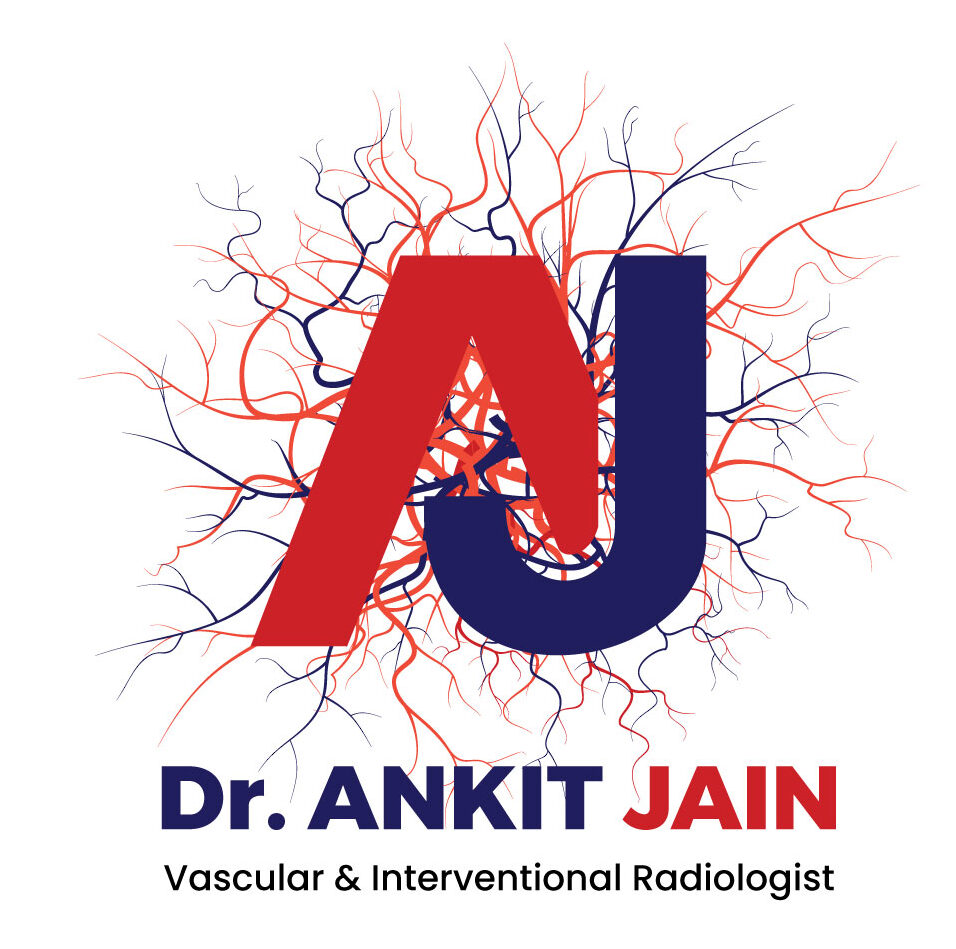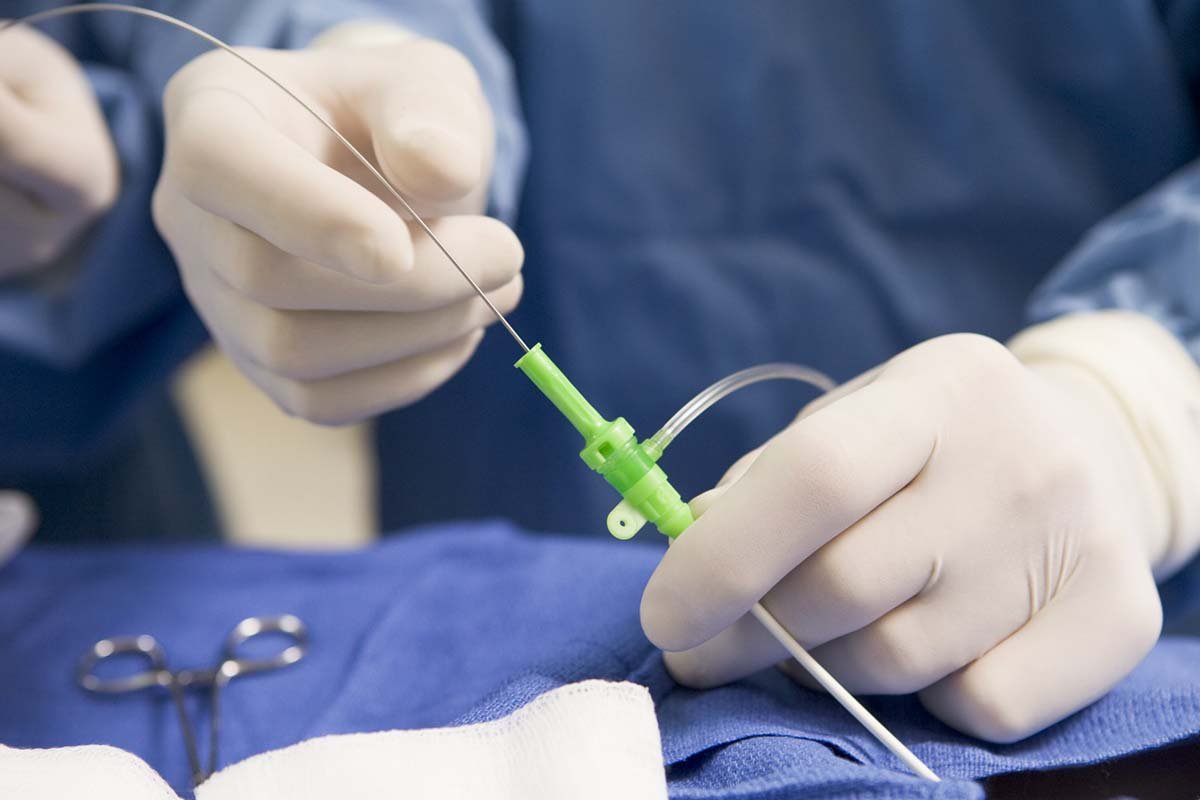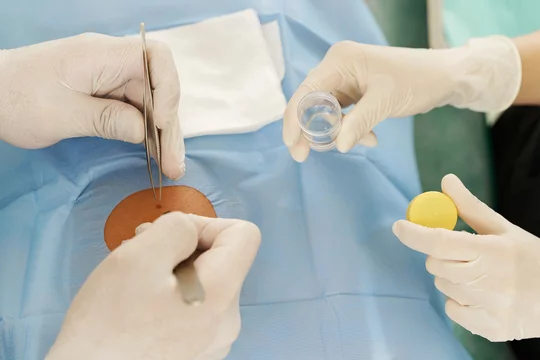Endovascular Surgeon in Sector 101
Endovascular surgery represents a cutting-edge field within vascular medicine, focusing on minimally invasive techniques to treat various vascular conditions. For residents of Sector 101 and surrounding areas, having access to a skilled endovascular surgeon can significantly improve the management of vascular diseases, offering advanced treatments with reduced recovery times and enhanced outcomes. Endovascular Surgeon in Sector 101 can provide expert care and advanced treatment options, ensuring the best possible results for patients with vascular conditions.
Understanding Endovascular Surgery
Endovascular surgery is a minimally invasive procedure that involves the use of catheters, guide wires, and other devices to diagnose and treat vascular diseases. These procedures are performed through small incisions or punctures, typically in the groin, arm, or neck, allowing the surgeon to access the vascular system with minimal disruption to the body. This approach contrasts with traditional open surgery, which involves larger incisions and more extensive recovery periods.
Conditions Treated by Endovascular Surgeons
Endovascular surgeons are trained to treat a wide range of vascular conditions, including:
- Aneurysms: Abnormal bulges or ballooning in the walls of blood vessels, which can be life-threatening if they rupture.
- Peripheral Artery Disease (PAD): A common circulatory problem in which narrowed arteries reduce blood flow to the limbs.
- Carotid Artery Disease: Narrowing or blockage of the carotid arteries, which can lead to stroke.
- Deep Vein Thrombosis (DVT): Formation of blood clots in deep veins, usually in the legs.
- Varicose Veins: Enlarged, twisted veins that can cause discomfort and lead to more serious health issues.
- Arteriovenous Malformations (AVMs): Abnormal connections between arteries and veins that can disrupt normal blood flow.
Advanced Endovascular Procedures
Endovascular surgeons use various advanced techniques to treat vascular conditions. Some of the common procedures include:
- Angioplasty and Stenting
Angioplasty involves inserting a small balloon into a narrowed or blocked blood vessel. The balloon is then inflated to widen the vessel, and a stent (a small mesh tube) may be placed to keep the vessel open. This procedure is commonly used to treat PAD and coronary artery disease. - Endovascular Aneurysm Repair (EVAR)
A minimally invasive technique called EVAR is used to treat abdominal aortic aneurysms. The surgeon inserts a stent graft through the femoral artery to reinforce the weakened section of the aorta, preventing rupture. - Thrombectomy
Thrombectomy involves the removal of blood clots from blood vessels. This procedure is often used to treat DVT or pulmonary embolism (PE), a potentially life-threatening condition where a blood clot travels to the lungs. - Embolization
Embolization is a technique used to block abnormal blood vessels or reduce blood flow to a specific area. This procedure is used to treat conditions such as AVMs, uterine fibroids, and certain types of cancer. - Carotid Artery Stenting
Carotid artery stenting is used to treat carotid artery disease. The surgeon places a stent in the carotid artery to prevent stroke by ensuring adequate blood flow to the brain.
Benefits of Endovascular Surgery
The minimally invasive nature of endovascular surgery offers numerous benefits over traditional open surgery:
- Reduced Recovery Time: Patients typically experience shorter hospital stays and faster recovery times, allowing them to return to their normal activities more quickly.
- Lower Risk of Complications: Smaller incisions reduce the risk of infection and other complications associated with open surgery.
- Less Pain and Scarring: Minimally invasive procedures cause less pain and scarring compared to traditional surgery.
- Improved Outcomes: Advanced techniques and technologies used in endovascular surgery can lead to better overall outcomes and long-term results for patients.
Choosing an Endovascular Surgeon in Sector 101
Selecting the right endovascular surgeon is crucial for ensuring optimal care and treatment outcomes. Here are some factors to consider when choosing an endovascular surgeon in Sector 101:
- Experience and Expertise
Look for a surgeon with extensive experience and specialized training in endovascular procedures. Board certification and affiliations with reputable medical institutions can be indicators of a surgeon’s expertise. - Patient-Centered Care
A good endovascular surgeon should prioritize patient-centered care, taking the time to understand your unique needs, explain treatment options, and answer any questions you may have. Personalized care plans tailored to your specific condition and health goals are essential. - Advanced Technology
Ensure that the surgeon and their medical facility are equipped with the latest endovascular technology and imaging equipment. Advanced tools and techniques can enhance the precision and effectiveness of treatments. - Positive Patient Outcomes
Research the surgeon’s track record of patient outcomes. Reviews, testimonials, and success stories from previous patients can provide valuable insights into the surgeon’s skills and the quality of care they provide. - Comprehensive Care
Choose a surgeon who offers comprehensive care, including preoperative assessments, postoperative follow-ups, and long-term management of your vascular condition. Coordinated care with other specialists and healthcare providers is also important for holistic treatment.
Why Choose Dr. Ankit for Endovascular Surgery in Sector 101
Dr. Ankit is a renowned endovascular surgeon in Sector 101, known for his expertise, compassionate care, and dedication to patient well-being. With years of experience and advanced training in endovascular procedures, Dr. Ankit has successfully treated numerous patients with complex vascular conditions.
- Expertise and Qualifications
Dr. Ankit is a board-certified vascular surgeon with specialized training in endovascular techniques. His extensive experience and commitment to staying updated with the latest advancements in the field ensure that patients receive the highest standard of care. - Patient-Centered Approach
Dr. Ankit believes in a patient-centered approach, taking the time to understand each patient’s unique needs and concerns. He provides personalized treatment plans and ensures that patients are well-informed about their condition and treatment options. - State-of-the-Art Technology
Dr. Ankit’s practice is equipped with state-of-the-art technology and imaging equipment, allowing for precise diagnosis and effective treatment of vascular conditions. The use of advanced tools ensures optimal outcomes and patient safety. - Positive Patient Experiences
Patients treated by Dr. Ankit consistently report positive experiences and successful outcomes. His compassionate care, attention to detail, and commitment to excellence have earned him a reputation as a trusted endovascular surgeon in Sector 101.
Conclusion
Endovascular surgery offers a minimally invasive and effective solution for treating a wide range of vascular conditions. For residents of Sector 101, having access to a skilled endovascular surgeon like Dr. Ankit can make a significant difference in managing vascular health and improving quality of life. By choosing an experienced, patient-centered, and technologically advanced surgeon, patients can achieve optimal outcomes and enjoy the benefits of cutting-edge vascular care. If you or a loved one is in need of endovascular treatment, consider consulting with Dr. Ankit to explore the best options for your vascular health.
For any further queries, Plz visit drankitinterventionalradiologist.com







